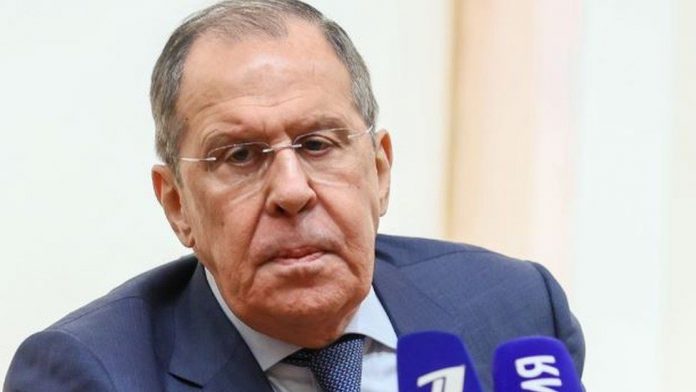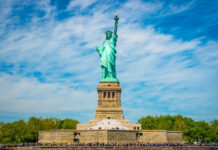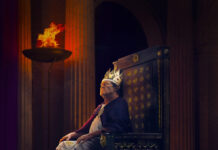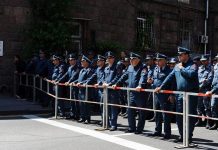A visit to Serbia by Russian Foreign Minister Sergei Lavrov has been cancelled because three of Serbia’s neighbours have refused to let his plane use their airspace.
EU member Bulgaria imposed the flight ban, along with North Macedonia and Montenegro – countries hoping, like Serbia, to join the EU.
Russia’s invasion of Ukraine triggered an EU airspace ban in February.
Mr Lavrov has blamed “the Brussels puppeteers” for the latest move.
Serbia has not joined the EU’s wide-ranging sanctions against Russia, and remains friendly with the nation. The EU and UK imposed a blanket flight ban on Russian planes – including the private jets of oligarchs – days after the 24 February invasion.
Like many other European countries, Serbia relies heavily on Russian gas. Mr Lavrov was to have had talks in Belgrade with President Aleksandar Vucic on 6-7 June.
In a statement broadcast on Russian state news channel Rossiya 24, he described the decision as “unprecedented” and said that “no one will be able to destroy our relations with Serbia”.
He also said: “It seems that the Brussels puppeteers very much did not want to again give us a platform so that in the capital of Serbia we could confirm Russia’s position on the problem of Kosovo and the problem of Bosnia-Herzegovina.
“They probably did not want us to express support for Belgrade’s initiative to realise the open Balkans project in the interests of making healthier, stronger relations between all the countries of the region.”
The Kremlin strongly backs Serbia’s refusal to recognise Kosovo’s independence. Russia was angered by the Nato bombing campaign against Serbia in 1999 during the Kosovo war.
In his statement on Monday, Mr Lavrov accused Nato and the EU of wanting to “turn the Balkans into their own project called closed Balkans.”
Commenting on the move to bar Mr Lavrov’s flight, a Russian foreign ministry source said “our diplomacy has yet to master teleportation”.
Serbia’s interior minister, Aleksandar Vulin, said he deeply regretted the “obstruction” of Lavrov’s visit, adding “Serbia is proud that it is not part of the anti-Russian hysteria”.
In early March thousands of pro-Russian Serbs marched through Belgrade, reflecting the countries’ traditionally close ties.





















